Hello. Who’s this? Alana Golmei and her helpline to fight discrimination against people from the Northeast
Dr Alana Golmei started North East Support Centre & Helpline in 2007 to fight crimes against people from the Northeast. The helpline, which gets 30-40 calls a month, has handled 600 cases of harassment, assault, and rape till now.
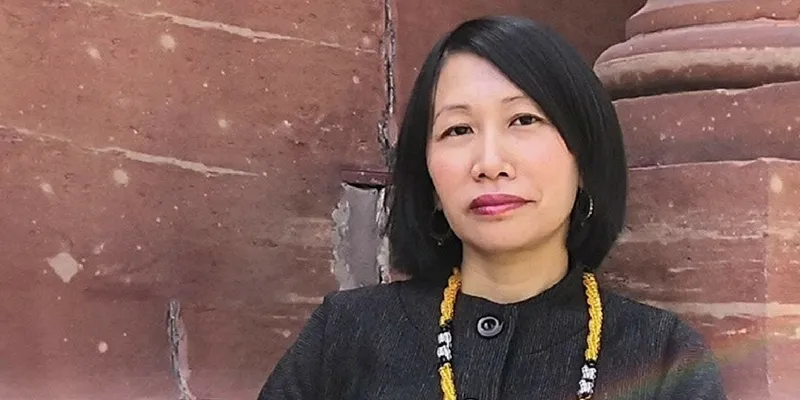
As a child, Alana Golmei was shy and introverted. She always aspired to be a teacher in her hometown in the hills – Tamenglong, Manipur.
“But, there were no recruitments in my state for 15 years when I completed my PhD in political science. Hence, I had to move to Delhi in 2005. I started looking for a job which wasn’t easy,” she says.
Unable to speak Hindi properly, Alana came up against the discrimination most people from the Northeast face in the rest of the country.
Twelve years later, Alana, now 42 years old, is making sure that people from the Northeast don’t run into trouble like she did. Since 2007, she has been running a private helpline, the North East Support Centre & Helpline (NESCH), to reach out to people from the Northeast who live in Delhi and need help.
Since then, NESCH has handled more than 600 cases of crimes against people from the Northeast, including harassment at the workplace, assault, and rape. The helpline gets 30-40 calls a month these days, handled by volunteers working in different parts of the capital.
On a typical day, Alana’s always on the run, holding workshops with the police, attending court, and taking distress calls from people.
It was the discrimination she faced and which she saw other people come up against that set her on this route.
A critical juncture
In Delhi, Alana’s journey began with a job in a project involving the rehabilitation of Burmese women refugees. She worked with women who had faced sexual assaults and rape and had seen the destruction of their own homes. While working with Burmese refugees, she tried to foster a community-like relationship between Indians and the Burmese.
Two years later, a critical juncture came in Alana’s life. She met a few young boys and girls from Northeastern states - students and employees in retail, the BPO sector and others - who not only faced discrimination, but were harassed, sexually assaulted, and underpaid.
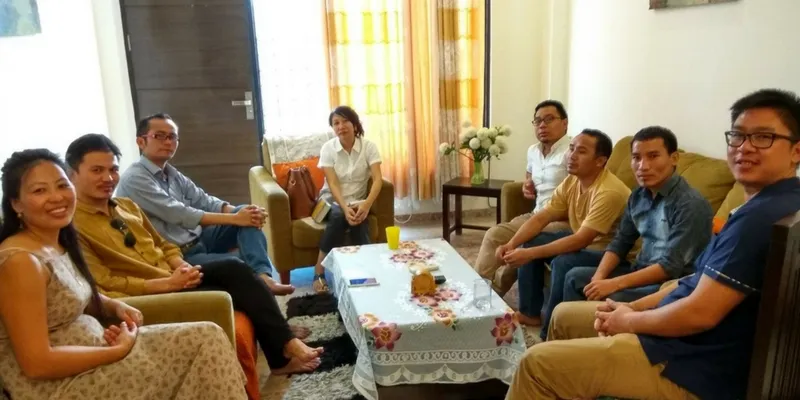
Alana says, “There is rampant discrimination against people from India’s Northeast. Most cases are based on their looks, clothes, and even lifestyle, and lead to assault.” “I saw this as a problem which was widespread, and I wanted to do something,” she adds.
Alana, with a few of her friends, set up their private helpline, NESCH in Delhi in 2007.
The M.P. Bezbaruah committee report, released in 2014, states that about 86 percent Northeasterners in Delhi have faced some form of racial discrimination. The committee was set up by the government to look into the problems faced by people from the Northeast in the aftermath of the murder of Nido Tania, a 19-year-old student from Arunachal Pradesh student, in January 2014.
Most small pockets of Delhi are inhabited by people who know little about the Northeast and tend to be culturally intolerant.
“They feel that every smartly dressed Northeastern woman is loose in character, every boy with spiked hair and tattoos is a drug addict or an alcoholic, and so they can be harassed. It is more of a mindset problem,” Alana says.
Clearly, something needed to be done.
Facing up to challenges
For Alana, setting up the helpline in 2007 was not easy as she faced multiple challenges. “We did not have the technical support as the helpline had to run 24X7, so someone had to be awake the whole night. Then if we got a call, we had to rush to spot and take the victim to the police station,” she recalls.
Dealing with the police was initially a huge challenge for NESCH. The Delhi police were not sensitised towards the discrimination people from the Northeast faced. “In the beginning, at police stations, we were mocked at the way we spoke Hindi. We were not taken seriously at all. The police had a very cool response to NESCH problems as they saw us as outsiders. We had to push the police to get the work done,” she says.
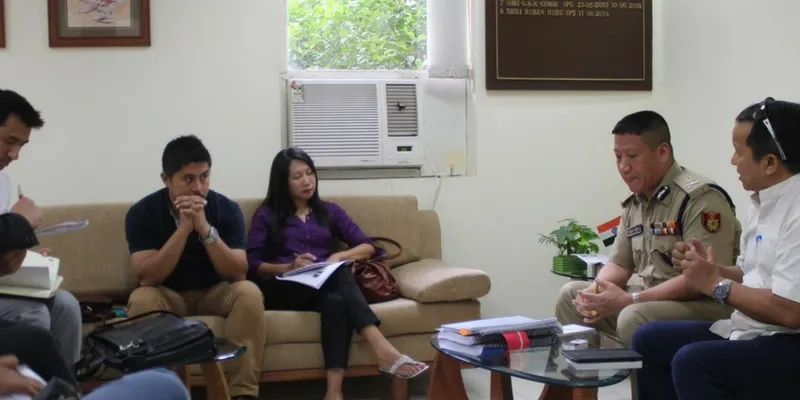
Compounding the problem was the fact that most of these victims were living alone as they had come to Delhi to study or work, and lacked social support. Harassed on many fronts, Alana says the victims needed counselling and legal guidance.
“Sometimes we provided the victims with financial support as well. The whole process of the court and the police station was very new and akin to a nightmare for youth from the Northeast,” she says.
NESCH, which is entirely funded by volunteers, has been operating on a voluntary model since 2007. Currently, their office is located in Delhi given by an NGO to use their space and 10-15 volunteers are working in Gurugram without an office.
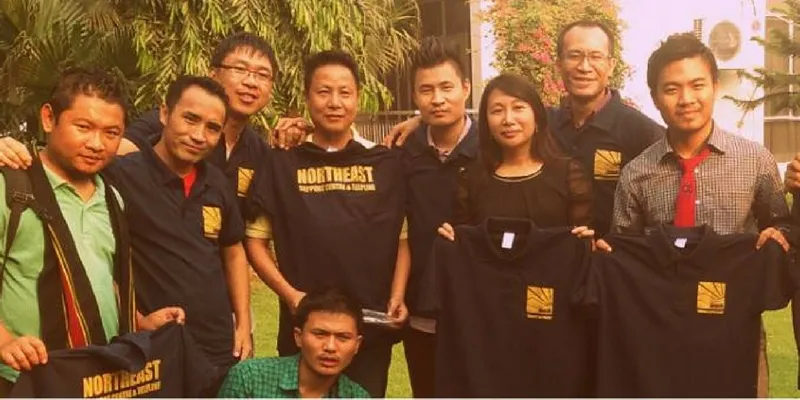
The focus of NESCH these days is on legal awareness programmes, sensitisation towards people from Northeastern India, and follow-ups of legal procedure with the help of the Human Rights Law Network, which helps NESCH pro bono.
Changing mindsets
The Bezbaruah committee found that Delhi is the worst offender among the metro cities when it comes to racial discrimination against people from the Northeast.
The report recommended strengthening laws, creating awareness among locals about the people from the Northeast, the inclusion of Northeast history in school textbooks, and promoting Northeast tourism in Delhi and other parts of India. However, implementation of many of the committee’s recommendations is still pending.
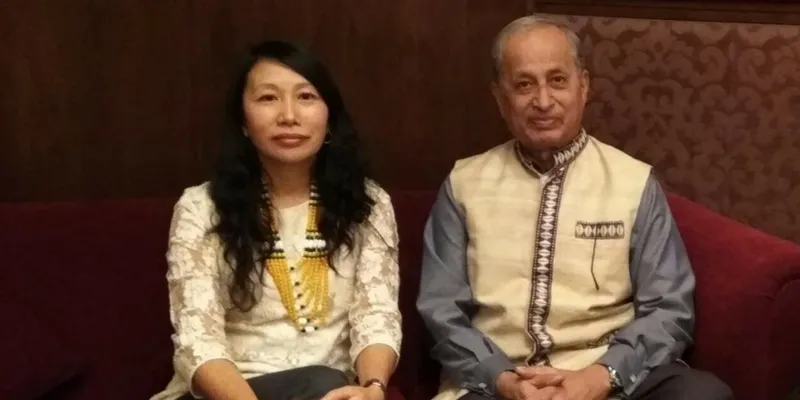
Alana says, “There is definitely a need for a stronger law. Eighty percent of Northeastern people do not get justice, while 60 percent of them go back home as they withdraw their cases.”
She feels there is a need for a softer policy to change mindsets, including the inclusion of Northeastern culture in school textbooks and organising Northeast events and festivals.
“Many locals in Delhi admitted that they have a problem with the way people from the Northeast dress, the food they eat, etc. It only calls for more sensitisation and understanding," she says. “The most important thing is to see discrimination against Northeast people as a problem which needs to be attended to,” Alana adds.
A major step toward the change was sensitisation of Delhi police, which Alana thinks has been “remarkable”. There is now a Northeast cell and she holds workshops with the Delhi police. NESCH volunteers also work with Delhi police helpline 1093, which was set up for people from the Northeast in 2014, and pass on complaints. The complaints range from criminal offences to harassment by landlords and salary disputes.
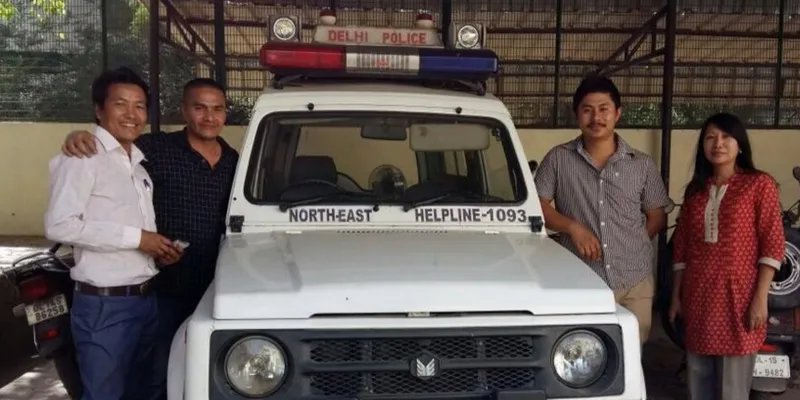
Alana is also running Pann Nu Foundation, a similar helpline for women from the Northeast that she founded in 2013. The foundation aims to “safeguard and uphold the dignity of women, and strive against all forms of discrimination and crimes against women irrespective of caste, class, race, religion and geographical region”.
On International Women’s Day in 2016, she was awarded the first annual DCW Achievement Award by Delhi Commission for Women in recognition of her efforts towards "spearheading the cause of women".
In the future, Alana plans to move back to Manipur, where she aims to help youth find employment. These people, she says, are her inspiration. “These young people who have faced discrimination are survivors and are not ready to give up their rights. This inspires me to fight for them every single day.”







